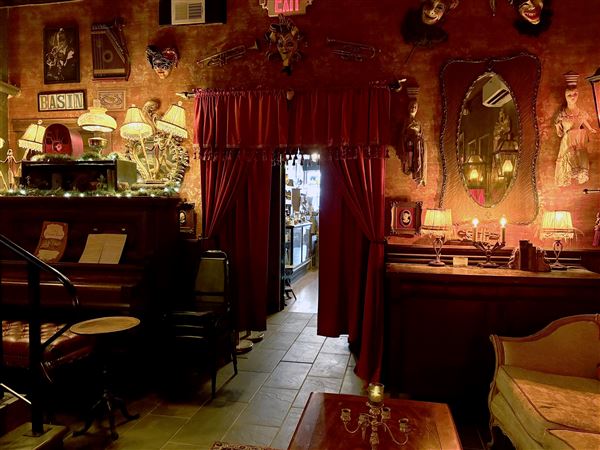Dave Itzkoff's "Mad as Hell: The Making of 'Network' and the Fateful Vision of the Angriest Man in Movies" provides an in-depth account of the making of the 1976 film that's particularly impressive because almost four decades have passed since the late screenwriter Paddy Chayefsky brought "Network" to the big screen.
"Network," a multiple Oscar-winner (for actors Peter Finch, Faye Dunaway and Beatrice Straight and Chayefsky's screenplay), tells the story of network news anchor Howard Beale (Finch), who is fired for low ratings. But before his last broadcast, Beale announces on live TV that he intends to commit suicide on his newscast in a week's time.
Penguin Press ($27).
Initially he's taken off the air for this deviation from the network news anchor norm, but then entertainment programming executive Diana Christensen (Ms. Dunaway) sees ratings gold in Beale's breakdown and anoints him "a latter-day prophet denouncing the hypocrisy of our times" and turns his newscast into a freak show with a psychic co-star.
The film holds up well when the focus is on the madness of the media business -- Chayefsky's ability to divine the ratings-obsessed future of TV is impressive -- but falters somewhat in its monologue-soaked final third.
"Mad as Hell" is at its best when offering analysis of the "Network" script at various stages and when giving short biographies of the film's primary players, especially Chayefsky, who initially dreamed up the concept of "Network" as a TV series, something that might fly today but was ahead of its time in 1969.
And that's important to keep in mind when rewatching "Network." It takes the film a half-hour to get to what seems like the obvious takeaway from Beale's on-air crackup: Spin it into corporate profit.
"Network" has to walk viewers through the inner workings of the TV business before it can move forward because back in 1976, TV did not inspire the sometimes-obsessive coverage it gets today.
There was no Entertainment Weekly, no "Entertainment Tonight," and television criticism was in its infancy. The closest thing to social media discussion of TV in "Network" is when Beale inspires his viewers to throw open their windows and scream, "I'm as mad as hell and I'm not gonna take this anymore!" It's the mid-1970s version of a Twitter retweet.
"Mad as Hell" weighs in on the film's importance in the careers of its cast and their behavior on set -- the book does nothing to improve Ms. Dunaway's difficult reputation -- and it reminds readers of the initial critical reaction to "Network," which was decidedly mixed.
Mr. Itzkoff explores the commonalities between Beale's mad-prophet routine and today's cable news talking heads: "They emote, they inveigh and they instruct their audiences how to act and how to feel; some of them even cry on camera."
He shows how corporatized news has become since "Network" and explores the idea of diversity and how it has and hasn't changed since "Network," which is notably overflowing with middle-age white guys.
But what Mr. Itzkoff misses is the film's prescience on the entertainment side as well. When the demanding network programmer Diana Christensen describes her desire for "angry shows" -- "The American people want someone to articulate their rage for them. ... I want counterculture" -- that's not too far removed from the antihero cable dramas that proliferate today, from "The Sopranos" to "Breaking Bad" and "Sons of Anarchy."
Of course, today's cable dramas are also smarter than TV shows featuring a "crusty but benign" boss character that so annoyed Chayefsky in the 1960s and early 1970s, so the screenwriter might be pleasantly surprised by the improvements in scripted TV since "Network."
And the three-ring-circus that Beale's newscast morphs into certainly resembles some of the reality shows that fill network schedules today. "Mad as Hell" focuses more on "Network" and its importance in the film pantheon, and why it would be difficult to get a movie like it made in today's superhero-filled movie environment.
First Published: March 30, 2014, 4:00 a.m.

















